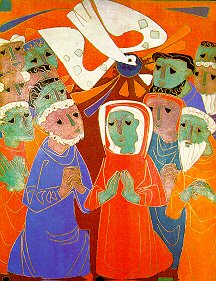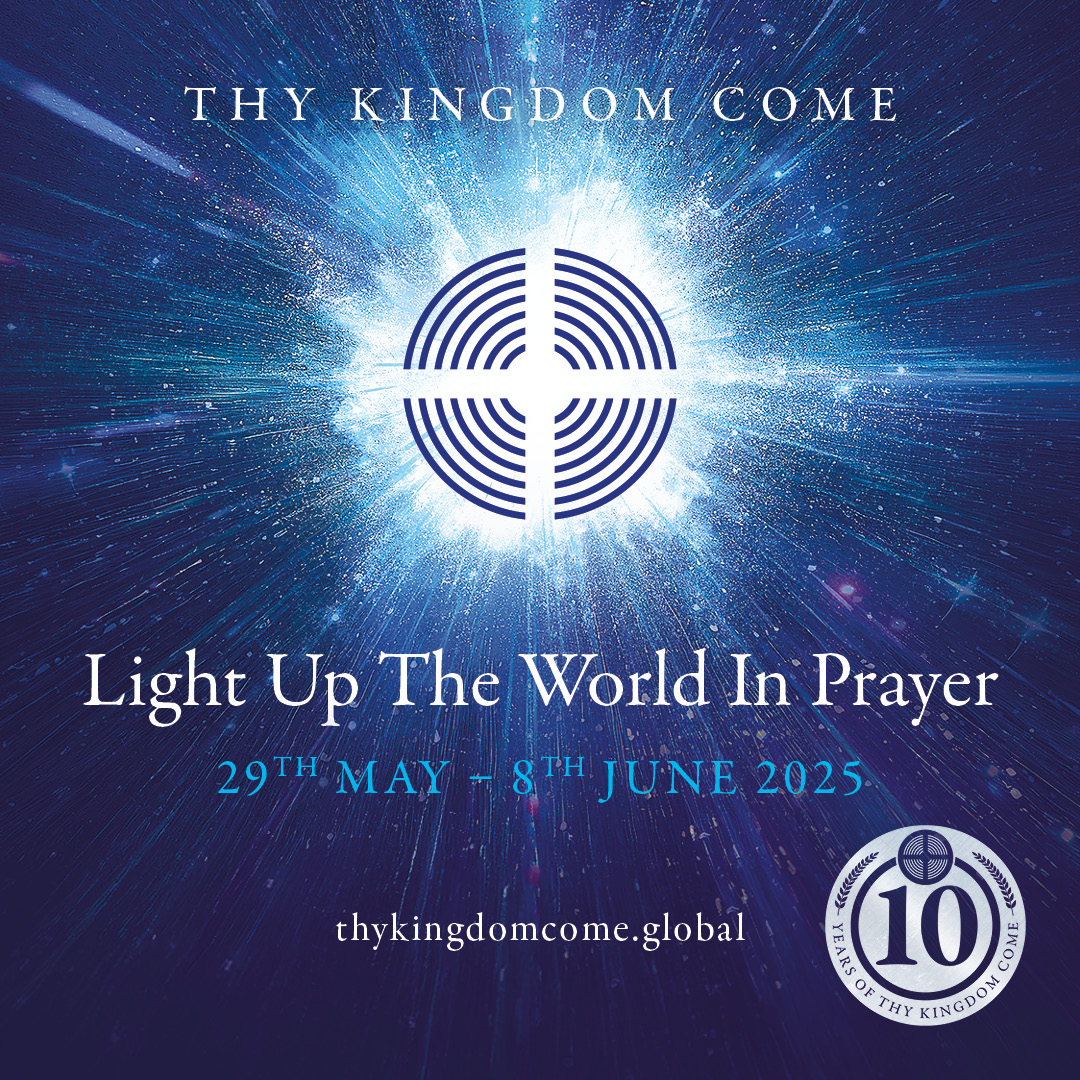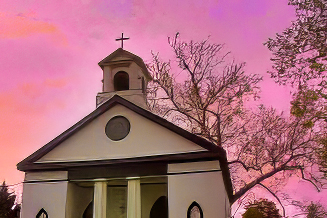I. Theme – The coming of the Holy Spirit

Window from St Aloysius’ church in Somers Town, London
The lectionary readings are here or individually:
First Reading – Acts 2:1-21
Old Testament – Genesis 11:1-9
Psalm – Psalm 104:25-35, 37 Page 736, BCP
Epistle –Romans 8:14-17
Gospel – John 14:8-17 (25-27)
Pentecost is the Greek name for the Jewish Feast of Weeks, celebrated fifty days after Passover. The literal meaning of Pentecost is “50 days”; it is now fifty days since Easter. The first fruits of the wheat harvest were presented, and the covenant with God was remembered and renewed.
Pentecost power and possibility pulsate through today’s readings on the Holy Spirit. Pentecost is a milestone in the story of salvation. It was on that day that the Holy Spirit was poured out upon the believers in an upper room in Jerusalem as they awaited the baptism Jesus told them they would receive. Jesus had promised this event just before He ascended into heaven.
"And there appeared unto them cloven tongues like as of fire, and it sat upon each of them. And they were all filled with the Holy Spirit, and began to speak with other languages, as the Spirit gave them utterance."
The symbol of fire is important for Pentecost.Fire has long represented God and the presence of his Holy Spirit. Fire consumes but is its own energy force. That energy is around action and for the church, mission. Acts is about mission, about speaking, proclaiming, the good news to people everywhere, in languages (and language) they can understand. This is the day in which the mission of the church was given birth.
The alternate reading form Genesis tells the story of God’s confusing the languages and scattering those building the tower of Babel.
The second reading describes how the Spirit works uniquely in each of us as children of God in the Body of Christ. Paul recognized the Spirit in the diverse gifts, ministries and members of the Corinthian community. The same Spirit nourishes, prods and emerges in multiple ways. In the realm of human activity, the transforming Spirit moves through the discovery of each other, the strength of fidelity, the give and take of loving relationships, the insight of artistic and scientific creation, the stubborn hope, or in its absence, “the sheer grit to go on.”
The Gospel reveals the intimate connection between Jesus and the Holy Spirit.
There is a need for an educator, a helper, teacher who remains constantly with those who would follow Jesus.Thus Jesus introduces the Advocate, the Spirit. We do not have to fear, because we know God is present with us, always. That is the entity that will remain and continue to instruct the disciples and the followers to come.It is then that Jesus can offer a sense of Peace or satisfaction.Troubled hearts, and fear will be taken away by the gentle comforts of the Spirit. God’s gift of the Holy Spirit is for the final transformation of our world.
For us we recognize that creation is not a one-time event, but an ongoing activity. God’s energizing power is evident here: vivifying, knitting together, upholding and transforming all life.
God has entered our lives in a new way, but yet it is an old, old story. The wind from God swept over the waters in the very beginning of time, in our own Creation story in Genesis 1. But this wind from God—the Spirit (and the word Spirit, wind and breath is the same in Hebrew, ruach, and in Greek, pneuma) continues to move among us and the world and do new things. We are called to break down the dividing walls and to build up one another in Christ. We are called to turn away from the things that separate us from one another and turn instead to the love of God, who calls us to share this love with our brothers and sisters in the world. And God is continuing to do a new thing in us, if we are open to receive and recognize the Spirit’s movement among us.
II. Summary
First Reading – Acts 2:1-21
The literal meaning of Pentecost is “50 days”; it is now fifty days since Easter.
In the Old Testament it was positioned on the Jewish calendar seven weeks after the Passover. It was the Jewish Feast of Harvest and was equivalent to our Harvest Thanksgiving Day. The high point of the celebration was the bringing of two loaves of bread, made from the newly harvested wheat, which symbolised the dedication of the harvest to God. In Acts we see the dedication of some 3000 people as a harvest of converted souls.
Pentecost is a milestone in the story of salvation. It was on that day that the Holy Spirit was poured out upon the believers in an upper room in Jerusalem as they awaited the baptism Jesus told them they would receive. Jesus had promised this event just before He ascended into heaven. He said, “Wait for the gift my Father promised. John baptised with water; but in a few days you will be baptised with the Holy Spirit.” (Acts 1:4-5) . The coming of the Holy Spirit is the gift inaugurating the final stage of the salvation story; this era leads up to the end of time. His arrival is in fulfilment of Christ’s promise, recorded in 1:8. The Holy Spirit comes: the sound is “like the rush of a violent wind” (v. 2), the images of tongues of fire. Commentators however would say the more remarkable things is that all those who were gathered heard the good news of Jesus in their own language.
They were already believers. For the forty days since his death Jesus had appeared to them many times until he told them of the coming of this gift. This 10-day of prayer and waiting must have witnessed the emptying of themselves so that they could receive the fullness of the Holy Spirit. The first Christian Pentecost was the fulfilment of prophetic promise. In Acts 2:16-18, 21, Peter left no doubt about it: “This is what was spoken of through the prophet Joel: ‘And it shall be in the last days,’ God says, ‘that I will pour forth my Spirit upon all flesh…’”
Acts is about mission, about speaking, proclaiming, the good news to people everywhere, in languages (and language) they can understand. This is the day in which the mission of the church was given birth. The New Testament church was called, commissioned, and empowered to go out into all the world with its universal message, calling everyone to a personal faith in the risen Lord.
Luke tells us that the Holy Spirit is the driving force behind this work, e.g. in the story of the Ethiopian Eunuch, we read “the Spirit said to Philip …” (8:29). They spoke “in other languages, as the Spirit gave them ability” (v. 4). Divided into nations in antiquity, now all humanity is one; now God is in our midst. The Spirit is the launching pad for this mission. The list in vv. 9-10 includes Jews from the whole of the known world. The mission to Gentiles will begin later. “God’s deeds of power” (v. 11), of which all spoke, are explained by Peter in vv. 14-36, based on a quotation from the book of Joel (vv. 17-18): as the end of the era in which we are living approaches, many people will prophesy, and many will “see” things beyond what we call concrete reality.
And this will happen because God pours out the Holy Spirit. Prophecy here is probably enthusiastically sharing the faith, “speaking about God’s deeds of power” (v. 11).
Old Testament – Genesis 11:1-9
Genesis 11:1-9 is sort of the antithesis to the Acts 2 story often read on Pentecost: the Tower of Babel.
It represents the constant growth of human sinfulness from Cain and Abel through those around Noah until this time. In their relation to God, humans have been proud, independent and disloyal to God. Now their sinful attitude culminates in their desire to “make a name for themselves” by building their own city and tower. They will no longer wait for God to come down to them when God wants to.
Their arrogant sinfulness provokes God’s judgment, which is unleashed on them through the confusion of their languages. This will make it impossible for them to be one people and result in their scattering throughout the world. This scattering of the nations signals God’s shift in attention from the nations in general to Abraham and his descendants as the covenant people who will create the kind of community that God desired for all persons form the time of creation.
The people go from having one language and build up a tower to make a name for themselves; in the Acts passage, the Holy Spirit comes from heaven upon them, and they are able to speak and to understand one another in different languages. The people are scattered from the Tower of Babel in Genesis, and their language confused (a play on Babel-“Babble”); whereas the disciples are gathered together, and their language is different, but they are able to understand one another.
It is an interesting dichotomy to read the two stories—in one, a group of people try to make a name for themselves by building a tower to the heavens; in another, the group have gathered out of faith and are given the call to share the Good News of “God’s deeds of power” (vs. 11).
Psalm – Psalm 104:25-35, 37 Page 736, BCP
This psalm has much in common with the first account of creation in Genesis 1: 2 – 4a with its “seven day,” structure. This is a Hymn of Praise, offered in the course of Temple worship, probably at the Autumnal harvest festival, given its theme of creation. It is a poem praising God and celebrating the order, the balance and majesty of creation reflecting upon God’s mighty power and loving care. Earlier verses have praised him for creating the heavens and the earth, for overcoming chaos, for continuing to care for the earth and all who live in it.
The Jewish people sang this psalm on Yom Kippur (The Day of Atonement) as they began a new year in repentance for past sins. The Day of Atonement was a special Holy Day for the Jewish people because it was on that one day of the year the High Priest would make a sacrifice for the sins of ALL the people and he would enter into the Holy of Holies… into God’s presence… and place the blood of the sacrifice on the Mercy Seat and the sins of the people would be covered.
When the High Priest fulfilled this task… the sins of the people were forgiven.It was during this Holy Day that Israelites could sense the closeness of God. A God who was not only mighty but a God who cared for them.
God’s marvellous “works” (v. 24) are everywhere, all made in his wisdom. It is direct praise of the Lord. He is not a one time, creator who has long since left his creation to its own devices and designs. He is involved in everything and with his breathe new life is sustained.
The language used has echoes of mythical accounts of creation, speaking especially of the sea as a place of great mystery and danger where great creatures go. The emphasis is on Creation’s dependence on God, not only for food and sustenance but for our very life itself. To Israelites, “the sea” (v. 25) was almost chaotic, beyond controlling, but God is so great that even “Leviathan” (v. 26), the mythical sea monster, is his harmless, sportive creature.
All living things depend on God at all times, for their “food” (v. 27) and their very “breath” (v. 29, life); without it, they die. Lack of God’s presence causes terror. Verse 29 talks of the very breath of God, or spirit of God which has echoes of Gen 2: 7 where God breathed life-giving breath into man, giving life itself. In a similar way although the psalm is not speaking directly about the Holy Spirit as we might understand that in New Testament terms there is an obvious link. God’s act of sustaining life and giving new life is not disassociated from what we see as the work of the Spirit. The point is that all creation and its creatures are totally dependent on God’s presence and ‘breath’.
His creative agent is his “spirit” (v. 30). Creation is continuous, continually renewed. The “glory of the Lord” (v. 31) is the magnificence of the created world, his visible manifestation. His power is evident too in earthquakes and volcanoes (v. 32). The psalmist vows to praise God throughout his life. Praise be to God!
Epistle – Romans 8:14-17
Here Paul wrestles with what it means to be a follower of Jesus. What he discovers is not a “mindset” as such, but rather a new mode of being. One does not merely follow, but rather becomes “a son, a daughter, a child” of the living God.
Having touched on the notion of “belonging” (such as a son, daughter, or child would have) Paul wants to make certain that his reader understands that this “belonging” is not like that of a slave, but rather that of an heir. The “belonging” brings into our life all the aspects of Jesus’ life, which we then share with him, from suffering to glory
The Spirit gives to Christians “the spirit of adoption.” While Jesus is the Son by natural relationship, Christians are children of God by adoption. Legal adoption created full membership in the family and bestowed on the adopted child all the honor, privilege and inheritance rights of a natural child.
Romans 8:14-17 declares that all who are led by the Spirit of God are children of God. The way of God is to include, bless, love and build up; the way of the world is to divide, separate, and condemn. We witness God’s love in our inclusion of one another and in our sharing of God’s love with all. This is not a new idea that Paul has, but a very old belief that began with the Jewish people: that all of us are created as children of God, that God loves us all. What is new is that this message goes beyond one group of people, but to all human beings.
Christians are “joint heirs with Christ,” sharing in Christ’s passion and resurrection and looking forward to sharing in his glorification. As God’s children we are encouraged to call upon God as “Abba! Father!” as did Jesus (Mark 14:36).
Gospel – John 14:8-17 (25-27)
John 14:8-17, 25-27 are part of Jesus’ final discourse to the disciples before his death, sharing the promise that they will not be left alone—that the Holy Spirit will come and be among them.
Philip said to Jesus, "Lord, show us the Father, and we will be satisfied." It’s clear that the disciples do not understand—Jesus has just told them that he is the way to the Father.
Philip’s request to see the Father expresses the human longing and hope for a real and intimate experience of God. This desire is answered because Jesus himself, together with his words and works, is the revelation of the hidden mystery of God. For the disciples, if they know Jesus, then they know God—the way of God is the way of Jesus.
One of the major themes of the fourth gospel is love. The word appears 57 times in fourth gospel, and the two great commandments are to love God and love one another. The followers of Jesus "will keep" the commandment to love. It is a simple statement of fact, i.e. this is how followers of Jesus live.
Jesus proposes another solution to Philip’s dilemma. There is a need for an educator, a helper, teacher who remains constantly with those who would follow Jesus. Thus Jesus introduces the Advocate, the Spirit. We do not have to fear, because we know God is present with us, always. That is the entity that will remain and continue to instruct the disciples and the followers to come. It is then that Jesus can offer a sense of Peace or satisfaction. Troubled hearts, and fear will be taken away by the gentle comforts of the Spirit. God’s gift of the Holy Spirit is for the final transformation of our world.
Jesus’ words of promise reflect the spirit of a non-competitive God. God does not want us to play small or be subservient, even to God. We don’t bow down as slaves (Romans 8) but standup as children and heirs who can make great plans and then seek to incarnate them. “Greater things” are possible for us when we “ask in Jesus’ name” and in alignment with God’s creative wisdom. We are not alone in our quest for abundant life – this is the quest of God for all creation and we can become messengers and manifestations of God’s creative love. While God’s Spirit is universal and everlasting, energizing human and non-human life, Jesus promises his followers that they can palpably experience the Creative Wisdom that brings worlds into being. We can partake in the same wise energy that characterized Jesus’ ministry. In so doing, we can face challenge and resistance with courage and steadfastness, and that is amazing to us and the world.




 Pentecost
Pentecost





